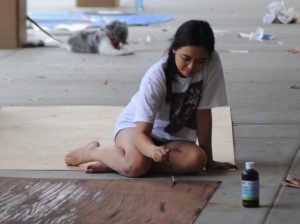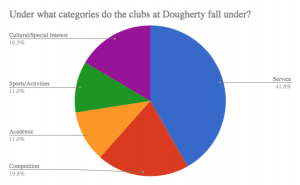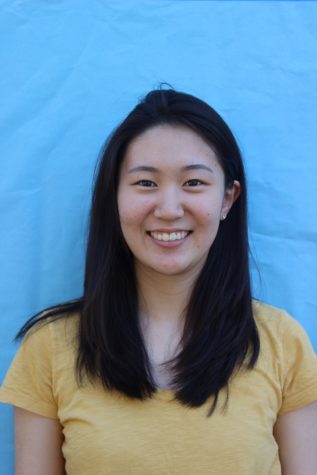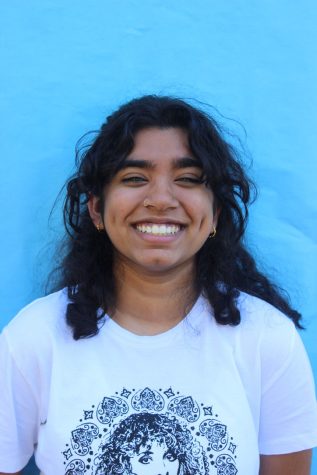Breaking Down the Walls builds human connection
December 17, 2018
This month, the DVHS Leadership team organized its second Breaking Down the Walls (BDTW) event, a four-day program meant to encourage a united and open-minded community on campus.
According to Learning For Living, Inc. — the organization that offers BDTW — the event is a “comprehensive program designed to unify, empower and engage every student to create a positive and supportive campus climate.”
This year, over 450 student participants and more than 20 teacher participants — made up of both first-timers and those who had taken part of the program last year — took part in the event.
Students came together in the Main Gym for an entire school day between Nov. 5-8, where the Leadership team broke the students apart into groups that were led by a Senior leader. Each student was encouraged to open up and share their personal stories with one another and bond over common struggles and experiences.
Junior Jalene Wong recounts her favorite event during BDTW to be an activity where students would “Cross the Line” depending on whether a statement announced by the speaker was true for them. Although it seemed “light” and “silly” at the start, the event quickly reached more serious topics such as depression and suicide.
“It was really brave for some people to cross the line because [suicide] is a very touchy, emotional subject. And so that made me realize that when I look at people, I can’t really see the whole story of what’s going on inside,” said Wong.
Junior Aditi Bagepalli also shared another memorable event in which individuals were able to stand before the entire crowd and share their thoughts on anything, such as their sentiment concerning their relationship with another in the crowd.
She explained, “[If] they want to relieve tension with someone else in the crowd they would call them up and talk it out in front of the entire crowd and I think that was really powerful.” She elaborated on how impactful the occasion had been on her, as she saw how students “were able to connect on a different level than [they] usually would with other friends, because you get to know more about their own personal life story.”
Not only were students able to connect with their peers, but teachers were also able to become more aware about issues that students faced at DV.
English teacher Ms. Hanna Love said, “It was really cool to be open and be a participant. The presenter wanted us to be a participant instead of a teacher, which was kind of cool because it allowed me and other teachers to be open and vulnerable and show that that is what you have to do to get something out of that day.”
Love continued to explain how BDTW changed her perspective as a teacher, especially as students at the event spoke about sensitive issues regarding peer pressure, abuse and even suicide.
She recounted, “As a teacher it just broke my heart. I went to bed at 7:30 p.m. because the emotion was so much that I couldn’t take it and cried a lot. It was really hard for me to see some students that I care so much, either past students or current students, and [just have] no idea that they had to go through that on their own. It just broke my heart.”
Love also shared how BDTW helped her create closer relationships with students. “So I was able to say, ‘Hey, if you need anything, come to room 1011.’”
As a whole, BDTW allowed participants the unique opportunity to step out of their comfort zones and open up about personal issues at school, but some have expressed their doubt that the event will make any truly long lasting impact. Several have expressed that they were never able to form intimate relationships with people that they shared their stories with, diminishing the impact of the experience.
“I think it just wasn’t helpful in the long-term because we wouldn’t maintain a friendship with the people at BDTW,” junior Shannon Zhang said. “People just ended up telling personal secrets to a bunch of strangers that they would never really get close to after the event.”
Jalene Wong also agreed she did not believe that she would ever talk with her BDTW group again, but looking at its long lasting impacts, she believes that it will allow her to be more open with people and help her understand people’s situations better.
She said, “I think I am realizing that I can be open about my problems because I know that other people are going to share the same problems as I do. It allowed me to want to listen to other people better, opposed to thinking that I’m the only one who has these problems. I guess in a way it did leave this lasting impact on me on [how to] see other people differently.”
Love also agreed that although BDTW did help students to become more open to their peers and teachers about their personal situations, there needed to be a clear follow-up to the event.
“A lot of the students tell me that it is so impactful on that day and then everybody goes back to normal,” she said. “We’re supposed to see that we aren’t the only ones going through problems, but you know it takes a long time to make change on a campus. Students, especially, need to make that change.”





